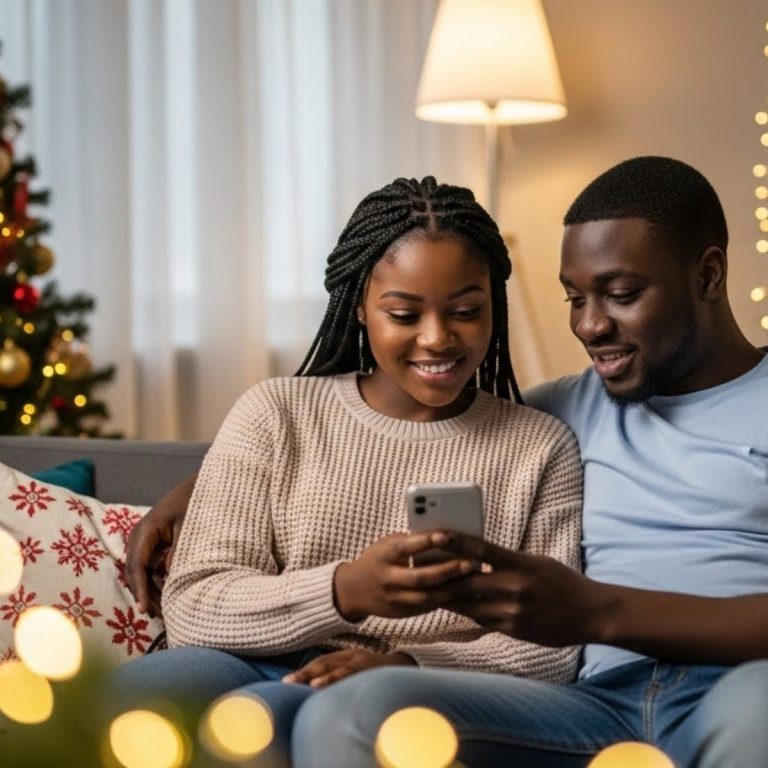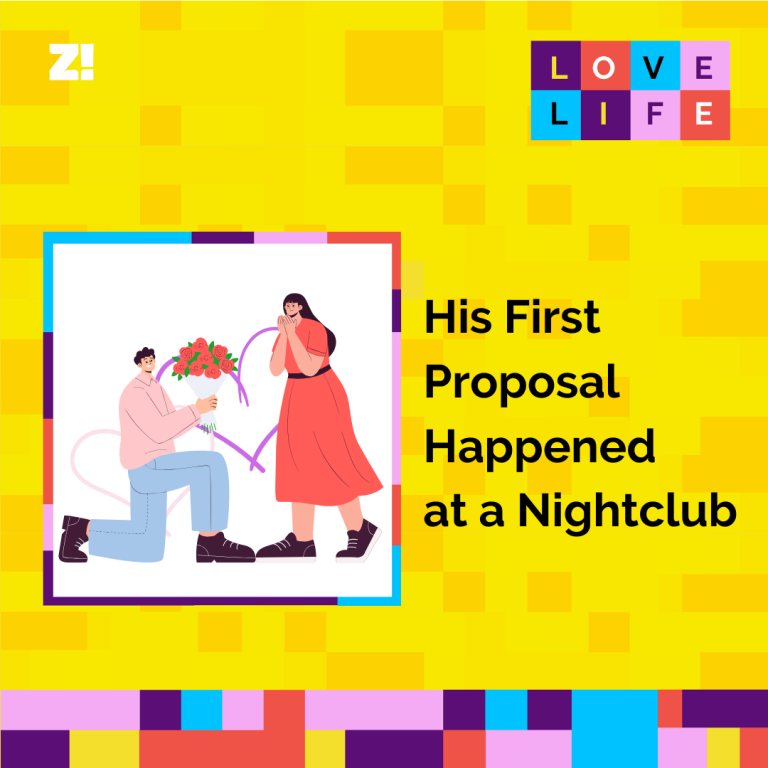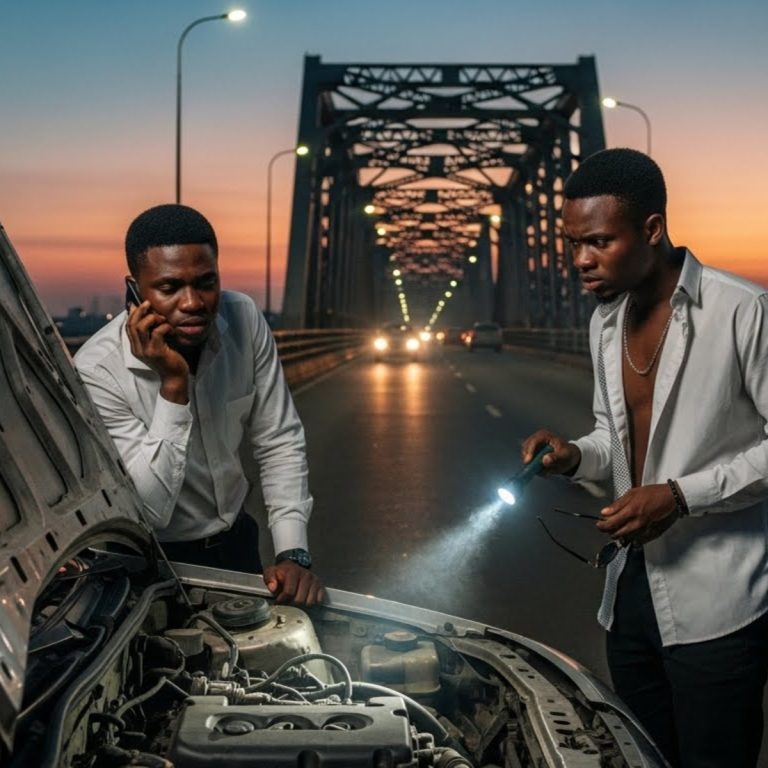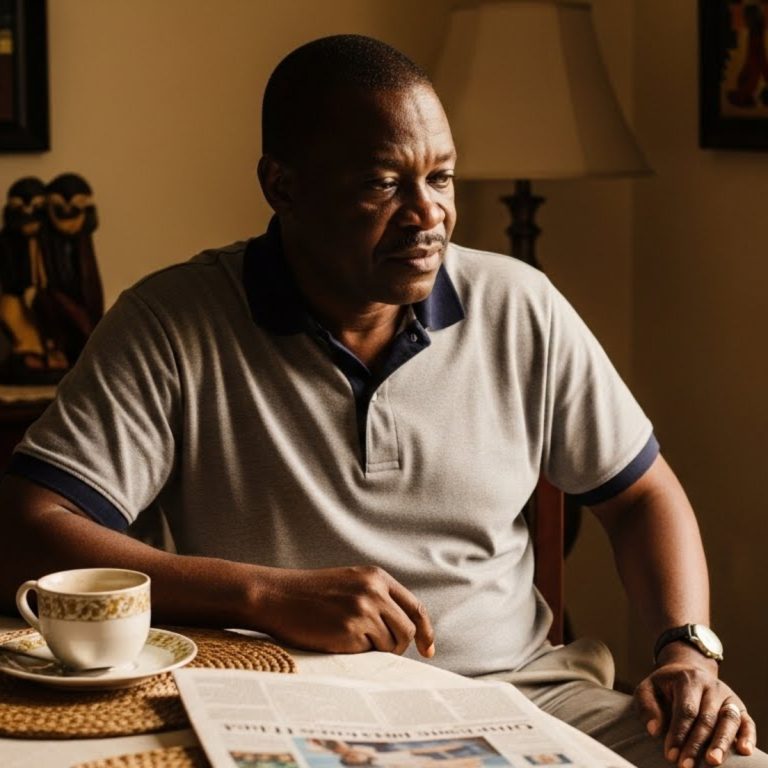Love Life is a Zikoko weekly series about love, relationships, situationships, entanglements and everything in between.

Did you know that 900,000+ Nigerians are buying and selling Bitcoin on Yellow Card? You can buy as little as 2,000 NGN worth of BTC.
Yellow Card is very easy to use and has the best rates on the market, low fees, and top-notch security. Join Now!
What’s your earliest memory of each other?
Hassan: 1999. Her family had just moved to Surulere, where my family lived. Aisha always looked so reserved whenever she stepped out. One morning, I saw her rushing to catch a bus, and it was the first time she looked dishevelled and not as put together like the previous times I’d seen her. Her scarf was flying everywhere, and she looked determined as she raced after the bus. Her energy was hard to ignore.
What was it about her energy that stuck with you?
Hassan: I was used to seeing women act prim and proper. I have female friends who’d have chose waiting for another bus over running after one. So, I could tell she was different. Seeing her run made me think she wasn’t afraid of a challenge and didn’t care much for what people say.
Aisha: This day was a complete mess. I was late for work, and everything was chaotic. But yes, it was 1999.
My first real memory of Hassan, though, was at the central mosque in our neighbourhood. He was always there, helping the elders and taking care of things. He also had a calm, steady presence that made people feel safe.
I see. So, at what point did friendship come into the picture?
Hassan: It happened slowly. We’d see each other at community and mosque events, exchange greetings, and have short conversations. I’d ask her how she was settling into the new neighbourhood and we’d occasionally talk about our personal interests. The conversation never moved past these basic things because we’re both Muslims and we wanted to keep the budding friendship “halal”.
Our relationship changed after my mother got sick. I’d casually mentioned it once after Jumat prayers and Aisha came around to help, even though we were just acquaintances. You don’t forget that kind of compassion.
Aisha: For me, I’d say it was when I started to experience his kindness firsthand. I’d already seen how he helped old people in the mosque but upon getting closer to him, I realised he wasn’t doing it just to score rewards from Allah or give an impression of being a good person. This was genuinely his person. Hassan was respectful and considerate that it didn’t matter that we were just getting to know each other; he treated me like I was already family.
But it was also his sense of duty—I saw how he catered deeply to his mum and siblings. He took his responsibilities seriously, and that made me feel secure.
How did things progress from there?
Aisha: After his mother recovered, we continued to talk. We’d have long conversations about our dreams, faith, and what we wanted from life. We slowly became closer, and there was a point where I couldn’t imagine a day without hearing from him. It felt natural to fall for him.
Hassan: I’d also started making my intentions known by this time. Watching her spend time with my family and how everyone accepted her made me know I’d found the person for me. It was also the same with her family members who’d started treating me like an in-law.
What do you mean?
Hassan: Her siblings were already calling me “oko aunty Aisha” ( Aunty Aisha’s husband) whenever I visited. Her parents also excused themselves from the living room whenever I came over.
At this point, it wasn’t a strange idea that we might get married.
So, when did you both realise you wanted to get married?
Hassan: Sometime in 2000, a year after we’d become good friends. I remember her dad calling me aside during one of my visits, and he said to me “Where is this thing with my daughter going?”
I didn’t think twice before telling him I wanted to marry her. Even though Aisha and I had always known it was the end game, saying it out loud to her dad was the first time I truly realised how much I wanted to be her husband.
I also remember praying about it and feeling a sense of peace that Aisha was the one. I knew she had the qualities I wanted in a wife: strength, kindness, and faith. So, I asked her if she’d consider building a life with me.
Aisha: I had already been thinking about it, too. When he asked, I didn’t even hesitate. I knew he was serious, dependable, and that he’d always have my back. We got engaged shortly after and got married in 2001.
Sweet. What were the early days of your union like?
Aisha: Oh, it was a rollercoaster. We were young and full of opinions. I had a loud mouth and wasn’t afraid to speak my mind, and Hassan was deeply rooted in his traditional ways. We loved each other fiercely, but we argued just as passionately.
Hassan: Yes, she kept me on my toes. We had different visions for how our future should look. Aisha had big dreams; she wanted to continue working after marriage, and I had to adjust to that idea.
Aisha: This “work after marriage” thing caused our first big fight. I remember crying to God during my prayers and asking if I’d made a mistake by getting married to this man.
Tell me more about this fight
Aisha: We’d just had our first child, and I wanted to go back to work. Hassan was worried about what our community would think. We’d already argued about this earlier when he suggested that I should be a stay at mum. At the time, it wasn’t really a fight; just a big argument that we resolved with one conversation.
But it was different this time around. To him, having his wife return to work months after childbirth felt like a failure on his part, and I couldn’t understand why he didn’t see that I just wanted to support our family.
Hassan: It was more than just money; it was about making my wife comfortable just like the Qur’an advises. I was earning enough to cater for both of us and the new addition to our family. I also grew up in a household where I watched my dad handle everything. It felt like I wasn’t good enough if she had to work.
But Aisha made me realise that it was about partnership, not pride. It took me time, but I learned.
If you want to share your own Love Life story, fill out this form.
Fair enough. What did this fight mean for conflict resolution in your relationship?
Hassan: It taught me humility and the importance of listening. Marriage isn’t just about leading; it’s about growing together. We learned to be each other’s biggest supporters.
Aisha: Exactly. We had to remind each other that we’re on the same team for life. We’ve built a life based on compromise, understanding, and so much love. And that foundation has helped us through the most difficult times.
Speaking of difficult times,what’s been the hardest thing you’ve faced together?
Hassan: Aisha was recently diagnosed with cancer. It was like the world stopped. We’ve faced challenges before, but nothing prepared us for this.
I’m so sorry to hear that. How did you both handle the news?
Hassan: It’s hard to talk about.
When we got the news, I felt like the ground had been pulled out from under me. But Aisha… she handled it with so much strength.
Aisha: At first, there was shock, then denial and finally acceptance.
I think I’d always imagined the possibility after my maternal grandmother died of the same disease. But after her, no one else in my family got the diagnosis, and I thought to myself, “Maybe Allah has finally taken this thing away from our family.” But then, it happened and the only question in my head for weeks was “How did this happen?”
But once I got to the acceptance stage, I started thinking about my family. “What would happen if I didn’t make it? What do I need to do for my family?” I became consumed with the idea of making sure they’d be okay if the worst happened.
That’s heavy. What did that lead to?
Aisha: I decided to find Hassan a second wife.
I’m sorry, but why?
Aisha: I know it sounds strange, but it feels like the right thing to do. I want to have a say in who takes over my role. It’s not just about finding someone who can love him; it’s about finding someone who will love and care for our three kids the way I would. It’s hard to explain, but it feels like the only way to have some control over what happens if I’m not here.
These kids…they’re teenagers, but they still have a long way to go before they become independent. It’s important that I entrust them in the hands of someone I know. It’s the only way I’ll rest in peace if this sickness takes me.
Hassan, how do you feel about this?
Hassan: I was and I’m still angry that she considered and perfected the idea in her head even before she shared it with me. I didn’t want to hear it. To me, planning for a future without Aisha feels like giving up on her. I believe in God’s plan, and I’ve been praying for her healing. I believe the women she’s introduced me to are good people. The problem is, they aren’t her. They don’t have her warmth or her spirit. It just feels wrong.
Aisha: It’s painful for both of us. But I have to be practical. It doesn’t mean I don’t have faith; I just want to be prepared. And I want to have a hand in choosing who will be part of our family.
I’m so sorry. How has this revelation changed your relationship?
Hassan: It’s an added strain, for sure. We’ve had arguments we never imagined we’d have. Sometimes, I’m too hard on her to follow the unending rules from the doctors. And she feels like I’m going about what could be some of our last moments together the wrong way.
But at the same time, there’s a new level of honesty between us. We’ve become more vulnerable with each other.
Aisha: Yes, we’ve become more open. There’s no room for pretence anymore. We laugh, we cry, and sometimes we just sit in silence, holding each other. It’s been hard, but it’s also made us cherish every moment we have.
You mentioned the kids earlier. Are they aware of any of these?
Hassan: We’ve kept things as gentle as possible. They know that their mother is unwell, but we haven’t spoken in detail about the situation. We don’t want to overwhelm them with fear.
Aisha: They’re still young, and it’s hard enough for them to see me tired or in pain. Talking about my plans to find their father a second wife would be confusing and upsetting for them.
Do you think there will come a time when you’ll need to have that conversation with them?
Aisha: Yes, probably. If things get worse or if we feel they need to understand more, we’ll talk to them. But for now, we’re focused on making memories, keeping their spirits up, and praying for the best.
That’s understandable. What will you miss the most about each other if that time ever comes?
Aisha: His voice. Hassan’s voice can calm any storm, even the one raging in my heart. I’ll miss the way he says my name when he’s trying to reassure me.
Hassan: Her laughter. It fills the room and makes everything feel alive. I can’t imagine a world without that sound.
How has your time together shaped your view of love and marriage?
Hassan: It’s made me realise that love is in the little things. It’s not about grand gestures but the everyday acts of care and sacrifice. Marriage is about holding on, even when it feels impossible.
Aisha: It’s also about acceptance. Loving someone through their pain, their flaws, their fears. It’s messy and complicated, but it’s worth every second.
Finally, on a scale of 1 to 10, how would you rate your love life?
Hassan: I’d give us an 8. We’re not perfect, but we’ve built something beautiful.
Aisha: I’d say a 9. Even with everything, our love hasn’t wavered. That’s something I’m proud of.
Read this next: She Sees Marriage As Freedom, but I Don’t Want to Get Trapped




